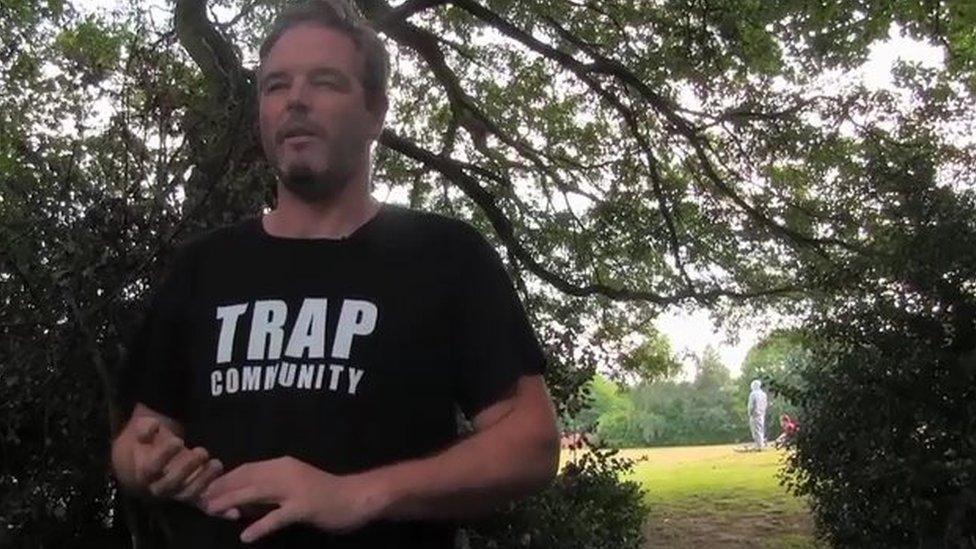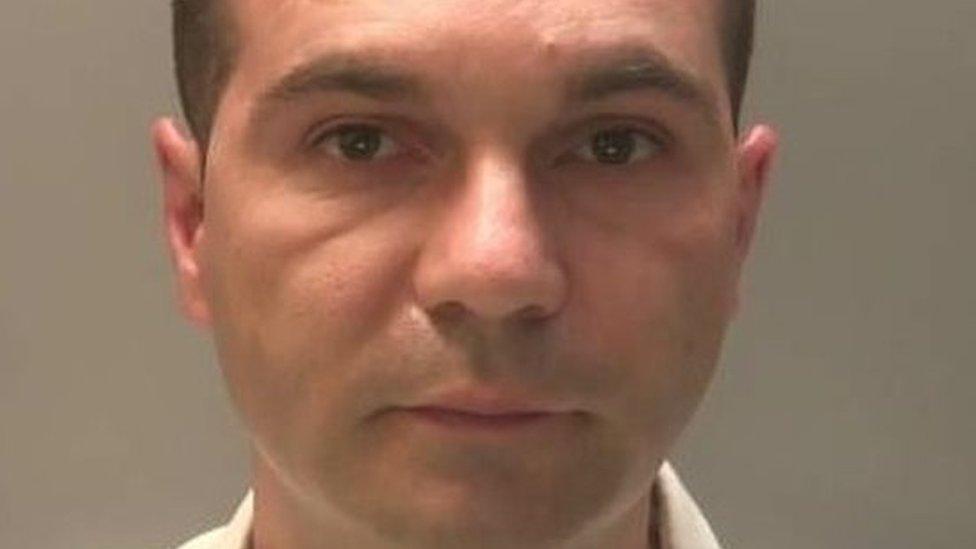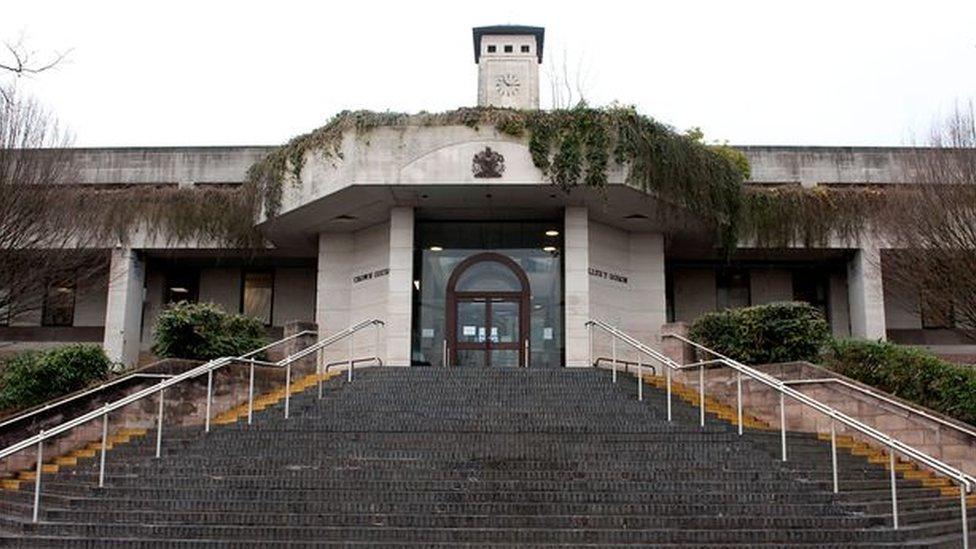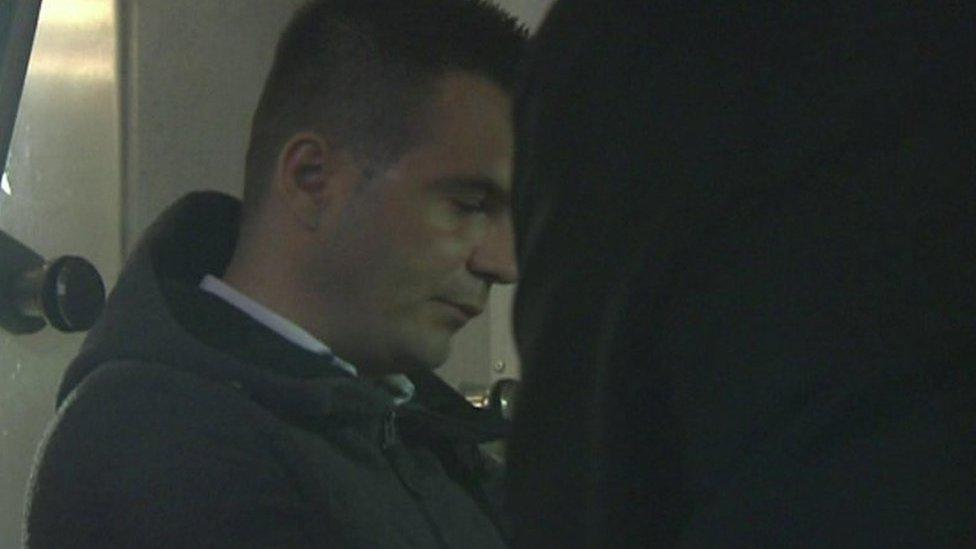Police in Wales use 'paedophile hunter' evidence
- Published

Police in Wales used evidence from so-called paedophile hunters in almost two-thirds of child sexual grooming criminal proceedings over three years.
A BBC investigation found forces in England and Wales used such evidence at least 150 times in 2017 - a seven-fold rise in two years.
In Wales, there were 31 cases where police started proceedings against grooming suspects from 2015 to 2017.
In 19 of these cases, police used evidence gathered by vigilantes.
The "paedophile hunter" groups use what they call "decoys" online to pose as underage children and wait to be contacted by adults.
They then converse privately with adults and identify those attempting to groom young people.
Individuals are then tracked down, the confrontation is often streamed live on social media and police are called.
Each police force in England and Wales was asked to say how many people had been charged after evidence was given by paedophile hunters, with 29 out of 43 able to give three years' worth of figures.
Gwent Police used such evidence in all but one of its 12 cases in 2017. The force's Police and Crime Commissioner Jeff Cuthbert last year urged more cooperation between police and vigilante groups, calling it "the right way forward", provided it was correctly planned.
A force spokesman said: "We rely on the assistance of the public in preventing and detecting crime. Working closely with communities is a vital way in which we gain information, and their active engagement in fighting crime helps us to do our job.
"Cases involving child sex abuse are extremely serious, often complex and have a huge emotional impact not only on the victims, but on whole families, and the communities in which they take place.
"We understand the desire to protect children but any member of the public who has information about child sexual abuse, online or otherwise, should get in contact with the police so we can investigate and bring people to justice."
Figures revealed in the investigation do not show how often those cases resulted in successful convictions.
Last year, one high-profile case resulted in a three-year sentence for a man who tried to meet a girl in Newport.
In his case, evidence from vigilantes who posed as a girl helped lead to the conviction.
But the same month, a judge in Cardiff criticised paedophile hunters and accused them of giving misleading evidence after the trial of an alleged sex offender collapsed.
Judge Thomas Crowther QC said: "This case underlines why criminal investigations should be conducted carefully, meticulously and by those who are trained and qualified to do so."
The figures showed:
Gwent Police recorded 20 cases over the past three years, started proceedings against 14 people, and proceeded using evidence gathered by paedophile hunters 11 times.
South Wales Police recorded 54 cases, started proceedings against 15 people, and used such evidence eight times.
Dyfed-Powys Police recorded 82 cases, and took proceedings forward against just one person, but did not use the evidence gathered in any cases.
North Wales Police had six recorded sexual grooming cases, and took proceedings against one person, but did not use vigilante evidence.
'Best left to police'
An NSPCC spokesman said: "While we have every sympathy for people concerned about suspected abusers, we believe that identifying offenders and investigating crimes is best left to the police.
"When members of the public take the law into their own hands it can run the risk of driving offenders underground, endanger on-going police work and the legal process or result in innocent people being targeted - all of which may put more children at risk of harm.
"If someone has concerns about a child's safety the best way they can help is to alert the police. By speaking out they may be able to help investigations and contribute vital evidence."
- Published10 April 2018

- Published18 September 2017

- Published17 August 2017

- Published21 September 2017

- Published29 March 2018

- Published17 August 2017

- Published4 August 2017
